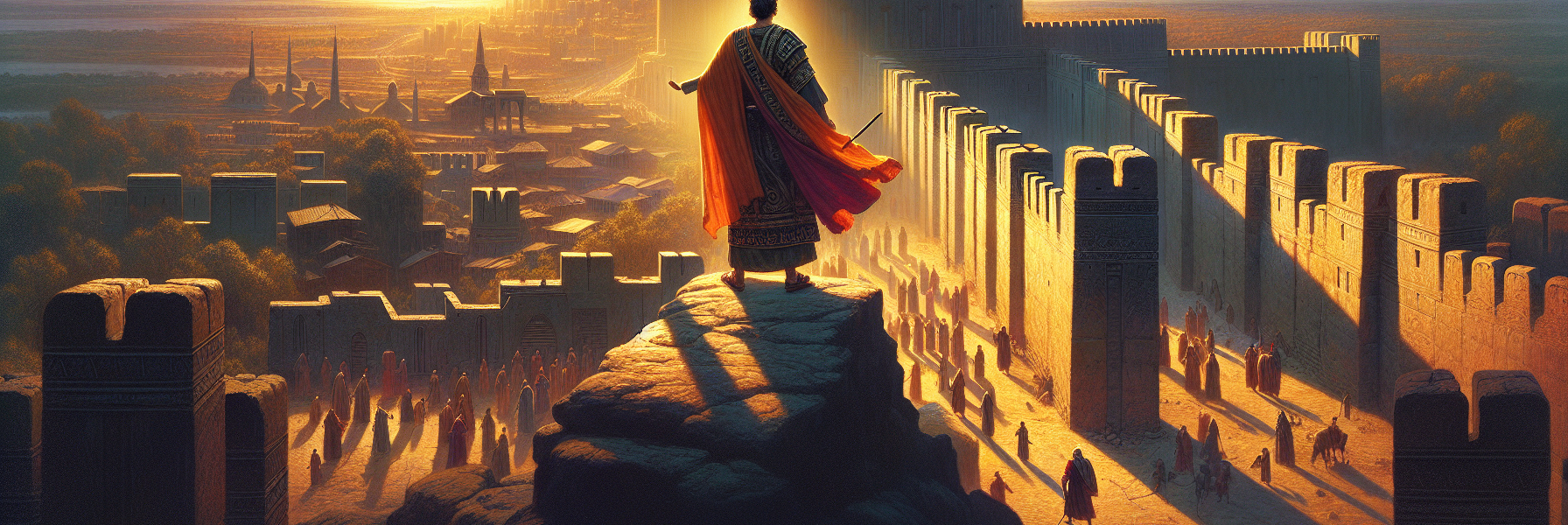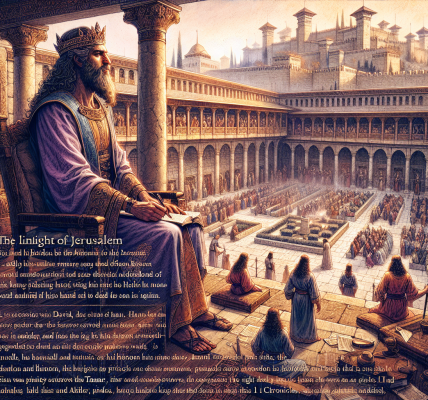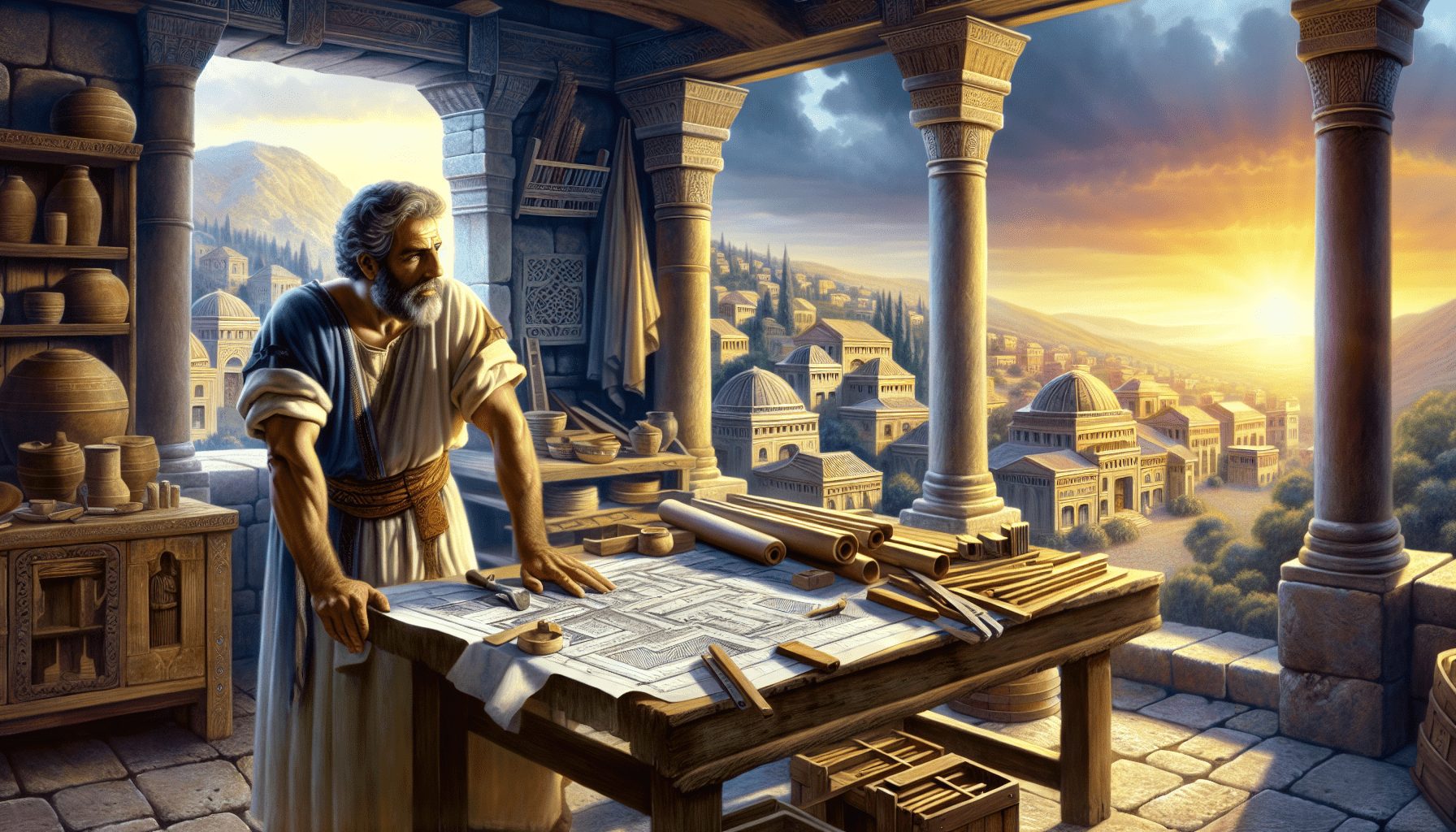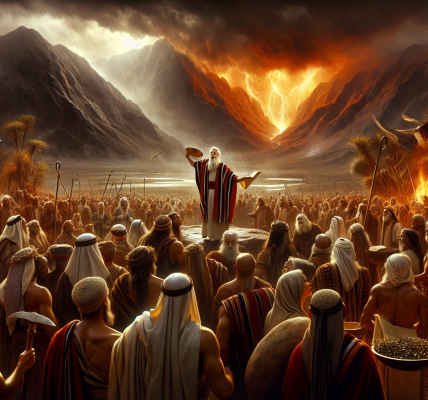**The Reforms of Nehemiah: A Tale of Righteous Zeal**
The sun hung low over Jerusalem, casting long shadows across the newly rebuilt walls. Nehemiah, the governor, stood atop the battlements, his heart heavy with both gratitude and concern. The city had been restored, the people had returned, and the Law had been read aloud to all. Yet, as he gazed upon the streets below, he knew that the work of revival was far from complete.
During his absence, while he had returned to serve King Artaxerxes in Susa, the people had grown lax. Word had reached him of their backsliding—how they had forsaken the covenant, mingling with idolaters and neglecting the house of God. Now, as he walked through the gates once more, he resolved to act with the same boldness that had once driven him to rebuild Jerusalem’s broken walls.
### **The Desecration of the Temple**
His first steps led him to the Temple courts, where the Levites and singers, who should have been ministering before the Lord, were nowhere to be found. Instead, the storerooms meant for sacred offerings had been turned over to Tobiah the Ammonite, a longtime enemy of God’s people. Nehemiah’s fists clenched as he saw the chambers cluttered with personal belongings—fine linens, vessels, and even food stores—all belonging to this man who had mocked the rebuilding of Jerusalem.
Without hesitation, Nehemiah commanded his servants to empty the rooms. “Bring every last item out!” he ordered, his voice echoing through the halls. The furnishings of Tobiah were hurled into the streets, and the chambers were purified with incense and prayer. Then, he summoned the Levites and singers back to their posts. “Why is the house of God forsaken?” he demanded. The tithes of grain, wine, and oil were restored, and faithful men were appointed to oversee the distribution, ensuring that God’s servants received their due.
### **The Sabbath Profaned**
Next, Nehemiah turned his attention to the marketplace. As the sun dipped below the horizon on the eve of the Sabbath, he saw merchants from Tyre and other lands setting up their stalls, their voices clamoring as they haggled over fish, grain, and wares. Judeans, forgetting the sanctity of the day, bartered alongside them, their pockets jingling with silver.
Nehemiah’s blood burned with righteous anger. He strode forward, his presence silencing the crowd. “What evil thing is this that you do, profaning the Sabbath day?” he thundered. “Did not your fathers do the same, and did not our God bring all this disaster upon us?”
The merchants shrank back, but Nehemiah was not finished. Before the gates could be opened the next morning, he stationed his own guards with orders to turn away any who sought to trade. When a few persistent sellers camped outside the walls, he confronted them face to face. “If you come here again on the Sabbath, I will lay hands on you!” he warned. From that day forward, the Sabbath was honored once more, a day of rest and worship as the Law commanded.
### **The Sin of Mixed Marriages**
Yet another matter weighed upon him—one that struck at the very identity of God’s people. Many of the Israelites, including nobles, had taken foreign wives from Ashdod, Ammon, and Moab. Their children no longer spoke the language of Judah but the tongues of their mothers, distant from the covenant of their fathers.
Nehemiah’s heart ached as he remembered Solomon, the wisest of kings, who had been led astray by such alliances. He gathered the offenders before him, his voice trembling with passion. “Shall we then hear of you doing all this great evil, breaking faith with our God by marrying foreign women?”
He rebuked them sharply, reminding them of the treachery that had once brought the kingdom to ruin. Then, with firm resolve, he purified the assembly, driving out those who refused to repent. A priest named Eliashib, who had allied himself with Tobiah by marriage, was stripped of his office. Nehemiah would not allow the holy seed to be defiled again.
### **A Final Plea for Remembrance**
As the sun set on his reforms, Nehemiah knelt in prayer, his hands raised toward heaven. “Remember me, O my God, for good,” he whispered. He had fought for the purity of worship, the sanctity of the Sabbath, and the faithfulness of God’s people. Though the struggle was great, he knew that the Lord would judge his deeds.
And so, Jerusalem stood once more as a city set apart, its walls strong, its people called back to covenant faithfulness. Nehemiah, the cupbearer turned reformer, had done what was right in the eyes of the Lord. And he prayed that his labor would not be in vain.
**The End.**




